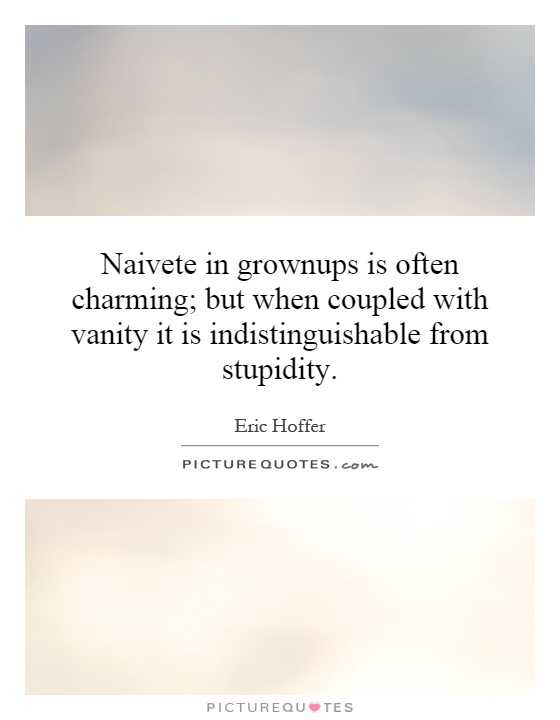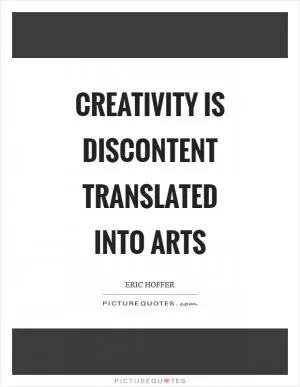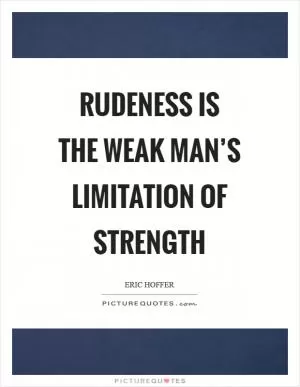Naivete in grownups is often charming; but when coupled with vanity it is indistinguishable from stupidity

Naivete in grownups is often charming; but when coupled with vanity it is indistinguishable from stupidity
Eric Hoffer, a renowned American philosopher and author, once said, "Naivete in grownups is often charming; but when coupled with vanity it is indistinguishable from stupidity." This statement holds a profound truth that is relevant in today's society where individuals often struggle to find a balance between innocence and arrogance.Naivete in grownups can indeed be charming, as it reflects a sense of innocence and purity that is often lost in the complexities of adulthood. It can be endearing to see someone who still believes in the goodness of people and the world, despite the harsh realities that surround us. Naive individuals often possess a sense of wonder and curiosity that can be refreshing and inspiring to those around them.
However, when naivete is coupled with vanity, it can become a dangerous combination that leads to ignorance and foolishness. Vanity, or excessive pride in one's abilities or appearance, can blind individuals to their own shortcomings and prevent them from seeing the world as it truly is. When someone is both naive and vain, they are more likely to make poor decisions based on their own inflated sense of self-importance, rather than on rational thinking or sound judgment.
In the context of Eric Hoffer's quote, it is important to recognize the distinction between charming naivete and foolish stupidity. While innocence and humility can be admirable qualities, they must be tempered with a sense of self-awareness and a willingness to learn and grow. Vanity, on the other hand, can lead to a false sense of superiority that ultimately hinders personal growth and understanding.












 Friendship Quotes
Friendship Quotes Love Quotes
Love Quotes Life Quotes
Life Quotes Funny Quotes
Funny Quotes Motivational Quotes
Motivational Quotes Inspirational Quotes
Inspirational Quotes